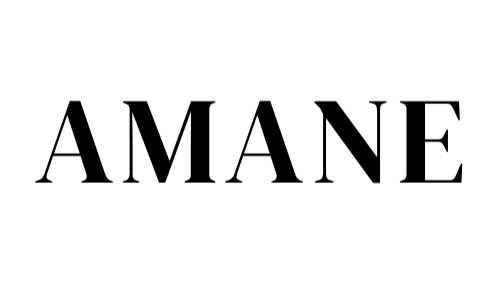What’s going on with Shein in Europe?
A closer look at regulation, lobbying, and what it reveals about the future of fashion
In recent months, the ultra-fast fashion platform Shein has come under growing scrutiny in Europe. While the brand continues to expand rapidly among younger consumers, its business model - based on very low prices, massive production volumes, and aggressive marketing - has triggered responses from regulators, consumer groups, and lawmakers across the continent.
Between legal investigations, new legislation, and coordinated political pressure, Europe is beginning to confront the consequences of ultra-fast fashion. What’s happening now reflects deeper questions about transparency, consumption, and what kind of fashion system Europe wants to support.
A wave of legal and political pressure
One of the most significant developments has come from France. In early 2025, the French Parliament passed a first-in-Europe law targeting ultra-fast fashion platforms like Shein and Temu. The legislation introduces a progressive tax : starting at €5 per item and increasing to €10 or more by 2030, on products that fail to meet environmental standards, particularly in terms of recyclability, carbon emissions, and lifecycle impact. In parallel, the law imposes strict limits on advertising and influencer marketing, effectively banning content that promotes ultra-fast fashion to the public.
This move marks a clear shift. For the first time, the fashion system is being regulated not only based on product safety or labor standards, but also on volume and pace. The logic is simple: extremely low-cost, high-turnover fashion has a structural impact on emissions, microplastic pollution, and overconsumption. France is attempting to address the issue at its source - through production incentives, rather than individual awareness campaigns.
At the same time, the European Union is increasing its regulatory pressure. Shein is currently under investigation for several alleged breaches of consumer protection laws. These include misleading promotional tactics (such as fake discounts), “dark patterns” designed to push users toward impulse buying, and lack of transparency regarding product origin or safety. If proven, these practices could result in heavy fines - up to 4% of the company’s European turnover.
Furthermore, the European Commission is considering changes to import taxation rules. Currently, many Shein parcels are shipped as small individual orders under €150 and are therefore exempt from customs duties. A new proposal would introduce a flat handling fee per parcel, designed to level the playing field for European producers and reduce the flood of low-cost imports.
Behind the scenes: a growing lobbying presence
In response to this tightening legal context, Shein has intensified its lobbying activity in Europe. Over the past year, the company has recruited several former politicians and EU officials to advise on policy and reputation management. Among them are Christophe Castaner, former French Minister of the Interior, and Günther Oettinger, a former European Commissioner.
Their role is to help influence decisions related to textile labeling, sustainability scoring, and e-commerce regulations. Reports also suggest that Shein has invested in communication campaigns to defend its image, including social media influence operations during the French legislative process.
This strategy reveals just how high the stakes are. For Shein, the European market represents both a massive opportunity and a growing source of political risk. While the platform still enjoys a strong user base, its reputation is increasingly challenged by environmental watchdogs and consumer organizations.
What’s really at stake
Beyond Shein itself, the broader issue is what kind of fashion model Europe is willing to support. Ultra-fast fashion relies on a cycle of low-cost production, mass advertising, and short-term consumption. This model has clear environmental consequences, from the release of microplastics to the enormous carbon footprint of rapid turnover manufacturing.
But it also raises questions about labor rights, tax equity, and market fairness. When large volumes of goods enter Europe without duties, under minimal regulatory oversight, it creates pressure on local and ethical producers who must meet far stricter standards.
The new regulations and investigations reflect a growing awareness: circularity, transparency, and sustainability cannot exist if the system rewards the opposite. What’s happening with Shein is not only about one company - it’s about drawing the line between progress and excess.
At Amane, we believe in a different rhythm. We are committed to a fashion model that is slower, more intentional, and rooted in respect - both for those who make the garments and for those who wear them.
We welcome the steps taken by France and the European Union to regulate ultra-fast fashion and to demand greater accountability from all industry actors. Fashion should not be exempt from the rules of fairness and care. Transparency must begin at every level: sourcing, pricing, impact.
This is not about moral superiority. It is about coherence. If we want a future in which modest fashion can also be meaningful fashion, then the system that surrounds us must shift. The pressure placed on Shein is one part of a larger movement toward more just and balanced production models.
Sources
– Marie Claire UK. “France Just Made Influencing Fast Fashion a Crime.”
https://www.marieclaire.co.uk/fashion/france-fast-fashion-ban
– Reuters. “EU to investigate Shein over dark patterns and fake discounts.”
https://www.reuters.com/sustainability/shein-hit-with-complaint-eu-consumer-group-over-dark-patterns-2025-06-05
– Vogue Business. “Why Shein is facing backlash in Europe.”
https://www.voguebusiness.com/story/shein-eu-france-investigation
– The Guardian. “EU to tighten checks on goods sold by sites such as Shein and Temu.”
https://www.theguardian.com/business/2025/feb/05/eu-to-tighten-checks-on-goods-sold-by-sites-such-as-shein-and-temu
– Fashion Network. “Shein’s PR shift amid European pressure.”
https://us.fashionnetwork.com/news/Behind-the-seams-shein-s-pr-shift-amid-eu-scrutiny-and-french-legislative-pressure
– Wikipedia. “Shein (company) – Lobbying in France and EU.”
https://en.wikipedia.org/wiki/Shein

